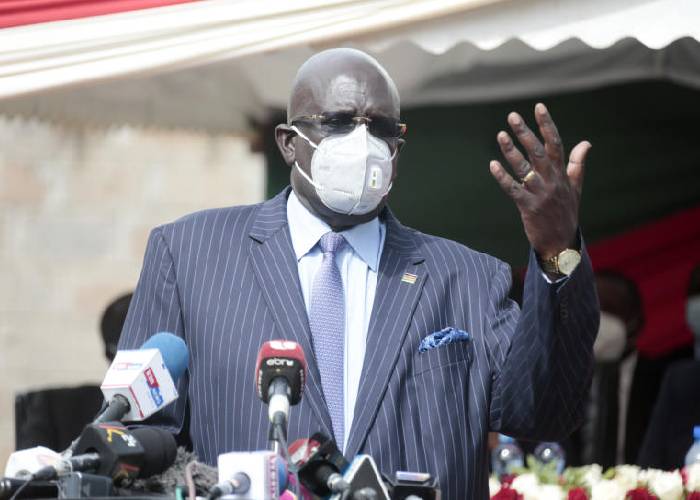×
The Standard e-Paper
Join Thousands Daily

Education CS George Magoha says the changes should wait until the relevant approvals and or gazettement of the relevant instruments. [File, Standard]
Education Cabinet Secretary George Magoha has suspended the proposed radical changes in the University of Nairobi's (UoN) administrative structure, terming them illegal.